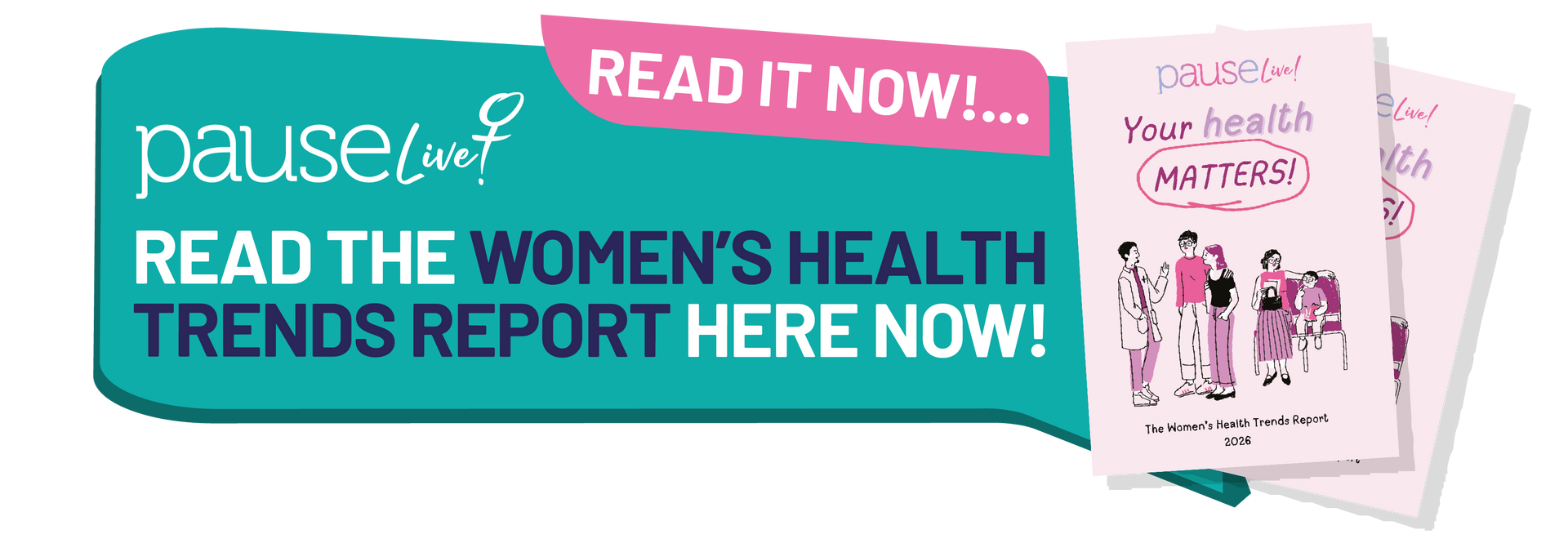MANAGING MENOPAUSE SYMPTOMS
Loss of Energy & Fatigue During Perimenopause and Menopause
Loss of energy and fatigue are among the most persistent and debilitating symptoms during perimenopause and menopause. They result from hormonal shifts—particularly declining oestrogen and progesterone—that disrupt sleep, metabolism and mood. Secondary symptoms such as hot flushes, night sweats, mood swings, brain fog and reduced muscle mass often compound tiredness. Age-related factors like slower metabolism, dehydration, chronic stress or thyroid dysfunction may further exacerbate fatigue
Common Symptoms
- Persistent exhaustion despite adequate rest.
- Impaired concentration, brain fog or "slow‑motion thinking".
- Low motivation, sluggishness or midday crashes.
- Irritability or mood swings aggravated by fatigue.
- Difficulty rising in the morning or sudden drowsiness in the afternoon.
- Unrefreshing or disrupted sleep, often due to night sweats or hot flushes
Contributing Factors
Hormonal Changes
Oestrogen plays a central role in energy metabolism and neurotransmitter regulation (serotonin and melatonin). Its decline can reduce metabolic rate, impair mood regulation and disrupt sleep rhythms. Low testosterone can further diminish muscle strength and stamina
Poor Sleep & Night Sweats
Frequent awakenings, early morning arousal or hot sweats impair restorative sleep. Progesterone and GABA deficits may exacerbate insomnia and daytime fatigue
Underlying Health Issues
Heavy menstrual bleeding may lead to iron‑deficiency anaemia; vitamin D, B₁₂ or B₁ deficiencies are common. Hypothyroidism or autoimmune disorders should also be investigated when fatigue is persistent
Chronic Inflammation
Menopausal low oestrogen may increase systemic inflammation, which contributes to lethargy, malaise and poor sleep quality
Lifestyle & Stress
Sedentary habits, high intake of caffeine/sugar, dehydration, poor diet and chronic stress can amplify fatigue symptoms
Managing Fatigue: Practical Strategies
1. Sleep Optimisation
- Maintain a consistent sleep routine: similar bed and wake times, cool and dark room.
- Avoid screens and stimulants in the evening.
- Use cooling bedding or lower morning sweats to improve rest
2. Physical Movement
- Engage in daily moderate activity: walking, yoga, Pilates, swimming or strength exercises.
- Aim for weight-bearing and resistance work to maintain muscle mass and metabolic health
3. Diet & Hydration
- Choose whole foods: vegetables, legumes, whole grains, lean proteins and healthy fats.
- Avoid refined sugars and ultra‑processed snacks that cause energy spikes and crashes.
- Stay hydrated; reduce alcohol and caffeine intake
4. Stress Management & Pacing
- Use stress-reducing strategies: mindfulness, breathwork, meditation, journaling, gentle outdoor time.
- Break tasks into bite-sized chunks, prioritise and rest deliberately (pacing technique)
5. Nutritional Support
- Have blood tests to check levels of iron (including ferritin), vitamin B₁₂, vitamin D and thyroid function.
- Supplement deficiencies as advised: iron (with vitamin C), B-complex, vitamin D or magnesium
Medical and Therapeutic Interventions
Hormone Replacement Therapy (HRT)
- NICE recommends HRT as the first-line treatment for significant menopausal symptoms including fatigue.
- HRT supports better sleep, mood, and energy regulation. Finding the right type and dose may take time.
- Some evidence also indicates that HRT may reduce inflammation. Testosterone therapy is not advised solely for fatigue
Psychological Support
- Cognitive Behavioural Therapy (CBT) and relaxation techniques can help manage stress, anxiety or depressive symptoms contributing to fatigue
Specialist Care
- If persistent fatigue continues, a GP or menopause specialist can investigate less common causes (autoimmune, thyroid, anaemia, hormonal profiles) and adjust treatment plans accordingly


